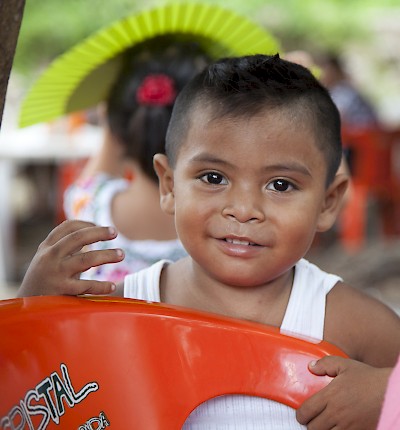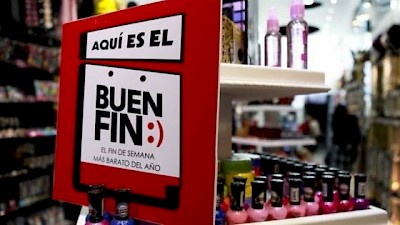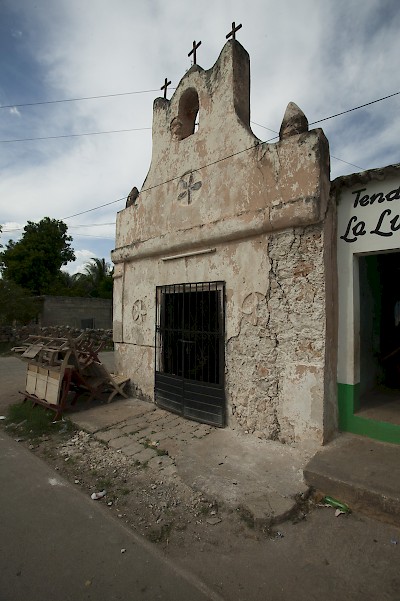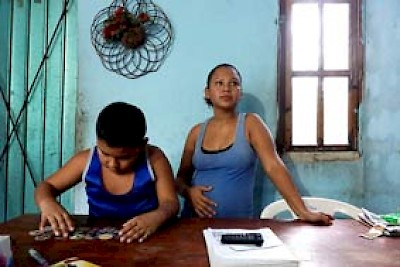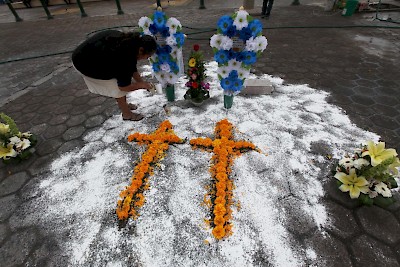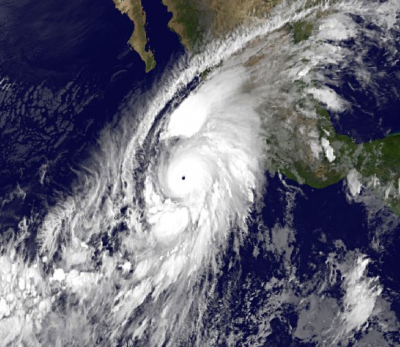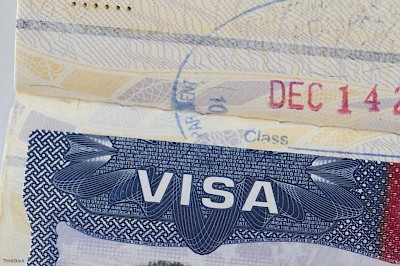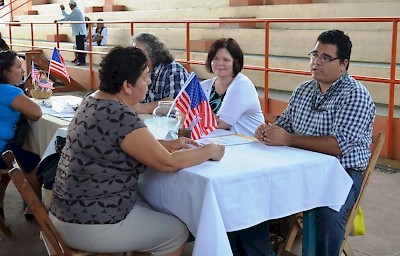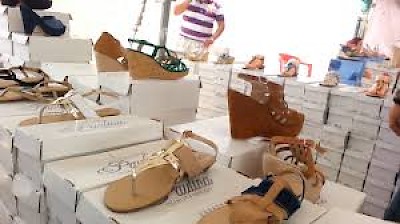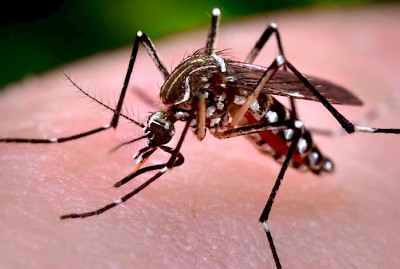Yucatan News: Mosquitoes and Maya Teachers
Need for Maya-savvy Teachers
The National Pedagogic University (UPN) in Yucatan has determined that two out of three Maya children between the ages of six and 14 do not attend school. The root of the problem seems to be that there are graduate programs for teachers to learn the basics of Maya culture and the Mayan language, but there are no programs available for teachers at the undergraduate level. This results in a shortage of teachers who have the skills to keep these children in school, at a time when other Yucateco students are being encouraged to not only graduate from high school, but to go on to college as well. This does nothing to help bridge the great divide between children who live in the cities with a myriad of educational opportunities and the indigenous children who live in rural municipalities. UPN has recognized this need and is working hard to design a non-standardized program that will educate teachers who are so desperately needed by the indigenous communities in Yucatan.
El Buen Fin Begins End-of-Year Sales
Mark your calendars for the weekend of November 13 through 16. The Good Weekend (the translation of El Buen Fin) will be back and 10,000 local businesses are expected to participate. Think “Black Friday” in the United States and that should give you an idea of what this event has grown into. This is a national event that is supported by a number of banking and business associations, including the National Chamber of Commerce, Services and Tourism, which reports that, over the past five years, Merida has been one of the cities with the largest level of participation in El Buen Fin. Merida also enjoys one of the nation’s greatest profits from the event. Look for great sales, along with raffles, door prizes, coupons and other types of discounts. According to the Chamber of Commerce, the participating businesses get better at holding these kinds of events each year, so everyone is looking for great shopping throughout the “Good Weekend.”
Home & Land Title Program Finally Happens
Imagine buying a house or land, only to discover that the cost of registering the title with the State is so high (2,500 to 3,000 pesos) and the process is so complicated, that you simply give up. What this means is that you pay for the house or land, but when you die there is no guarantee that your family can remain in their home. You cannot put the property in your will because you do not have title to it. In addition, what happens if you need to sell the house? You can’t sell property without a title, at least not legally. All of these problems will go away now that the State of Yucatan has streamlined the process of obtaining a property title, reduced the price to between 200 and 300 pesos. The state has begun taking the necessary staff out to the municipalities, rather than requiring the people to come to Merida. What a wonderful early Christmas present for nearly 200,000 property owners in Yucatan. Congratulations to them all.
UBELONG Photographic Exhibit in NYC
Thirty-five photographs of the families of immigrants who were left behind in Yucatan are being displayed in a show at the Instituto Cervantes in New York City. These are the photos, along with the stories, of family members whose loved ones either went to the United States and came home again, or crossed the border and never looked back. The effect on the families left behind is monumental, sometimes good and sometimes not so good. The Huffington Post article “The Side of Mexican Immigration That You Need to See” presents sixteen photographs and stories of those Yucatecos who were either immigrants who returned home, or family members who were left behind. We can only hope that it helps to change some hearts and minds on the subject of cross-border migration. UBELONG is a volunteer tourism organization. Although they work in a number of countries, their only volunteer projects in Mexico are in Yucatan.
Mob Kills Two Young Pollsters in the State of Puebla
It seems that urban legends were what caused a mob of fearful rural people to attack and kill two young men who were simply taking a survey about tortilla consumption. Behind the killing and burning of the bodies were at least three old rumors, i.e. that the strangers were either there to steal children and rob them of their organs for transplantation north-of-the-border, or that they were there to steal and rape young girls, or that they were part of a conspiracy in which ordinary people are “disappeared” as a result of gang violence in the area. It must be noted that none of those incidents has ever been documented. While such an incident seems unthinkable here in Yucatan, we must remember that other places in the world are not so lucky. Ignorance plus deadly and mysterious rumors can, and has, created deadly mobs such as this. More details on this story can be found on U.S. News and World Report.
Update on Duke and Theresa, Merida Expats
This week has been amazing. It started with Theresa visiting a funeral home and ended with Duke waking up and actually being responsive, something she never thought she would have again. Many thanks to beloved expat Theresa for keeping us all in their loop as she and Duke make their way, all in one year, through first her breast cancer and now his pneumonia. You can follow along (when Theresa has time to post) on her blog (What Do I Do All Day – The DIY Page for Life). Please remember that there will be a need for continued support for Duke and Theresa for some time to come. If you can help, Beth Knepp and Joanna Rosado are accepting cash, Roger Bowie is accepting donations on behalf of the Merida Men’s Club, and Elizabeth Ward is accepting donations via PayPal (betsyandalex@yahoo.com). Those who live at the beach can drop off donations to Joanne Dueck and she will get them to Joanna Rosado in Merida. Please keep Duke and Theresa in your thoughts and prayers as they make their way through this difficult time.
Weather: Olaf and Patricia
What a difference a day makes, especially in the world of weather! This is the tale of two hurricanes, a big one (Olaf) and a smaller one (Patricia). Olaf was headed for what looked like California, while Patricia took aim at Puerto Vallarta. Within a matter of hours, Olaf ratcheted itself down to a Category 2, and Patricia burst into a Category 5 hurricane. Instead of going to California, lazy Olaf is currently wrapping itself around Hawaii, while little Patricia, clocked as the strongest hurricane ever recorded, hit the west coast of Mexico from Acapulco to Puerto Vallarta and beyond. WIth a storm of this size, we can anticipate that there will be a desperate need for supplies in the aftermath of this storm. Please watch the papers for information on local food and clothing drives. Luckily, Patricia's power decreased quickly once she hit land, and was quickly downgraded to a Category 2 storm. For reference, a Category 5 hurricane’s speed is 157 mph. As of this writing, no fatalities have been reported, as Patricia seemed to go through sparsely populated areas, avoiding Puerto Vallarta and Manzanillo. For the latest update, click here for a report from CNN.
For Yucatecos Wanting to Visit the United States
There are many Yucatecos who visit the United States for the holidays and/or for holiday shopping. If this fits you, or if you know someone who wants to go, please have them visit the U.S. Consulate in Merida. The visa process takes three to five weeks, so they need to apply for their visas now. The good news is that the process can be begun online on the U.S. Nonimmigrant Visas page. We hope everyone has a wonderful holiday this year, whether you choose to spend it north-of-the-border or in Yucatan.
When are the Shoe Fairs?
The dates of the Spring Shoe Fair in Ticul are easy to figure out. The week before Easter is Holy Week, so all Easter clothes need to be purchased prior to that. This means that the Spring Shoe Fair in Ticul is the week and weekend leading into Semana Santa (Holy Week). The Fall Shoe Fair is a little different now. This is because the annual shoe festival has joined the Fair Trade Expo and the zapaterias (shoe factories) now have booths at this huge Siglo XXI fair in Merida. But what we want to know is when? It looks as if this Fall Fair Trade Expo is held during the third full week in October, meaning you can either drive to Ticul and shop from the factory outlets themselves, or you can stop by Siglo XXI and see what the shoe factories have brought into the city with them. The Fall Shoe Fair has just ended, but the shoe factories in Ticul (like this one) are advertising some pretty good prices, so maybe a short day trip might be a good idea.
Merida Has Only Veterinary Blood Bank in Mexico!
We know we talked about it last week too, but we want to make sure you know about this. The Southeast Veterinary Blood Bank is not only the first of its kind in Mexico, but it ranks as #17 in the World Network of Veterinary Blood Banks, and serves all of Mexico, from Yucatan to Baja California. As of now, there are only 30 blood donor dogs. If you have a dog that you would like to volunteer as a blood donor, check the requirements in last week's news article. If they pass all of the diagnostic tests and fit the need, they can donate up to 450 milliliters of blood every three months. In return, they receive free medical checkups to ensure that all is going well. To obtain new donors, there is an altruistic donation campaign being conducted by the Facebook page Veterinary Blood Bank of Mexico (Banco de sangre veterinario de Mexico).
Mosquito Warning in Southern California
Those nasty little bugs that are causing havoc in the Yucatan and around the Caribbean have apparently begun showing up in Southern California as well. The State of California's Public Health Officer has issued a warning that these invasive disease carriers have been detected in Southern California now. Because Californians are not accustomed to living with mosquitoes as a rule, Dr. Karen Smith is warning residents and travelers coming back to California who might be infected to be conscious of them. “It is important to know these species of mosquitoes because they are not what we’re used to in California, and they can transmit diseases such as dengue fever, chikungunya and yellow fever,” Dr. Smith said. “While the risk is still low in California, infected travelers coming back to California can transmit these viruses to mosquitoes that bite them. This can lead to additional people becoming infected if they are then bitten by those mosquitoes.” Though this species has been detected previously in Madera, Fresno and San Mateo counties, in September of 2015 it was also detected in both Riverside and San Bernardino counties for the first time. The article goes on to explain that "Aedes aegypti mosquitoes can lay eggs in containers holding as little as a teaspoon of water, and eggs, which are laid just above the water line, and can survive dry conditions for months. This is why it is important to dump, drain, or eliminate unnecessary sources of standing water around your home and scrub containers to dislodge eggs. " She also underlines that if you travel to Mexico or other countries in Latin America, be aware of Aedes mosquitoes and the diseases that they can carry. In 2015 so far, about one-third of the 120 chikungunya cases imported into California were contracted in Mexico. Sixty-nine imported cases of dengue have also been reported in California this year.






